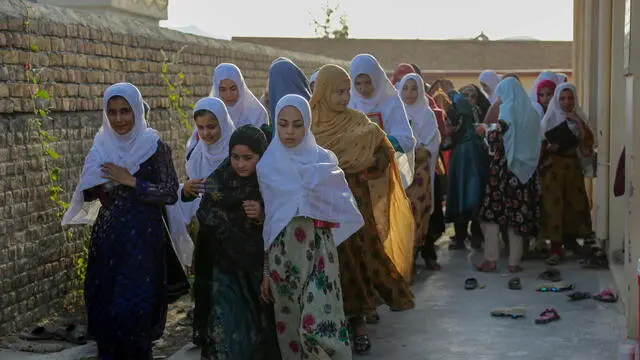Unicef, '1.000 giorni senza istruzione per le ragazze afghane'

ROMA, 13 GIU - "Oggi ricorre un anniversario triste e deprimente: 1.000 giorni dall'annuncio del divieto di frequentare le scuole secondarie per le ragazze in Afghanistan. 1.000 giorni fuori dalla scuola pari a 3 miliardi di ore di lezione perse". Lo afferma Catherine Russell, direttrice generale dell'Unicef. "Per 1,5 milioni di ragazze, questa esclusione sistematica non è solo una palese violazione del loro diritto all'istruzione, ma comporta anche opportunità sempre più scarse e un deterioramento della salute mentale. I diritti dei bambini, soprattutto delle ragazze, non possono essere ostaggio di politiche. Le loro vite, il futuro, le speranze e i sogni sono in bilico", ha proseguito. L'impatto del divieto va oltre le ragazze stesse. Acuisce la crisi umanitaria in corso e ha serie ramificazioni per l'economia e la traiettoria di sviluppo dell'Afghanistan. L'istruzione non fornisce solo opportunità. Protegge le ragazze da matrimoni precoci, malnutrizione e altri problemi di salute e rafforza la loro resistenza a disastri come le inondazioni, la siccità e i terremoti che spesso affliggono l'Afghanistan", ha aggiunto. Secondo Russell, gli operatori dell'Unicef "stanno lavorando duramente per sostenere tutti i bambini in Afghanistan. Insieme ai partner, stiamo garantendo a 2,7 milioni di bambini l'istruzione primaria, gestendo corsi di istruzione a livello comunitario per 600.000 bambini - due terzi dei quali sono ragazze -, formando insegnanti e facendo tutto il possibile per mantenere in funzione le infrastrutture scolastiche". La direttrice generale dell'Unicef ha poi lanciato un appello: "nel momento in cui segniamo questo triste anniversario, esorto le autorità de facto a permettere a tutti i bambini di riprendere immediatamente a studiare. E invito la comunità internazionale a rimanere impegnata e a sostenere queste ragazze che hanno bisogno di noi più che mai. Nessun Paese può progredire se metà della sua popolazione viene lasciata indietro".
Riproduzione riservata © Giornale di Brescia
Iscriviti al canale WhatsApp del GdB e resta aggiornato
